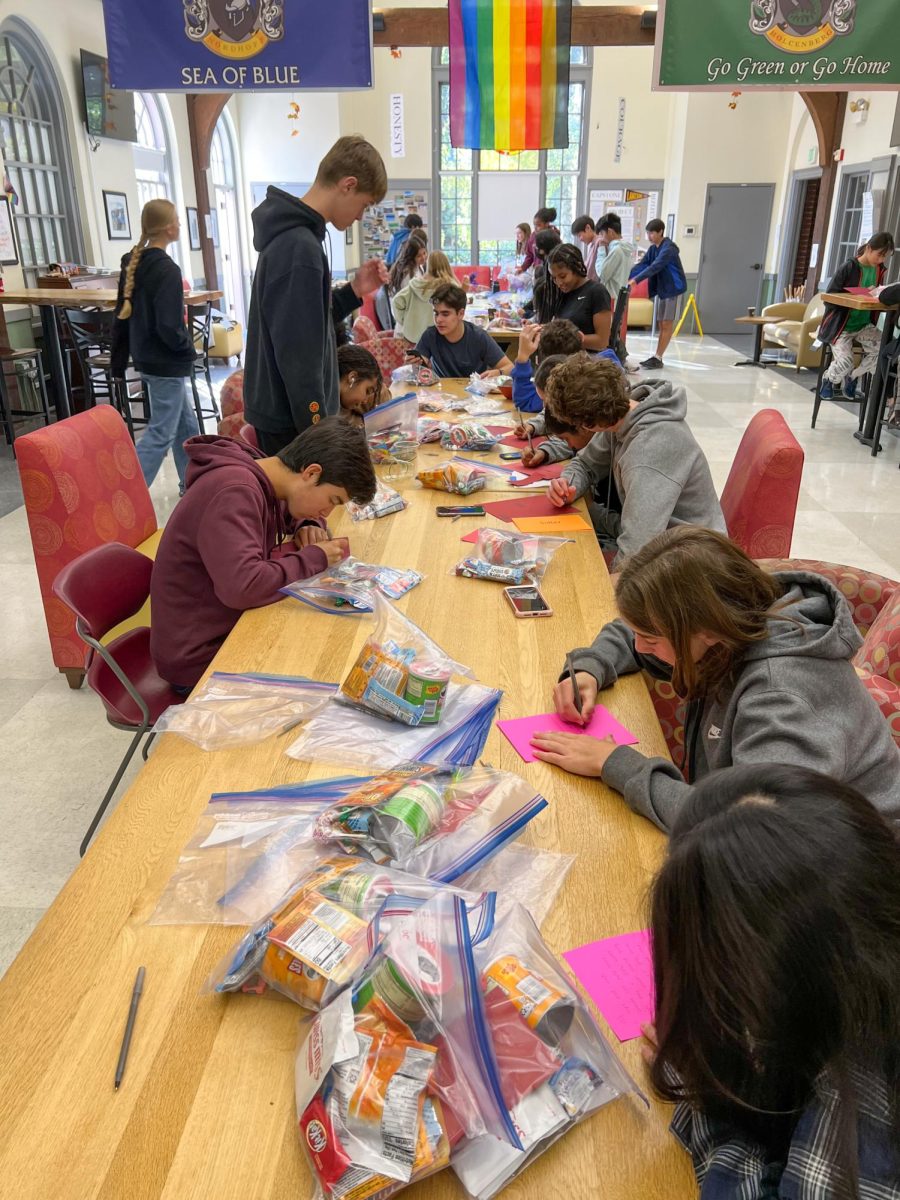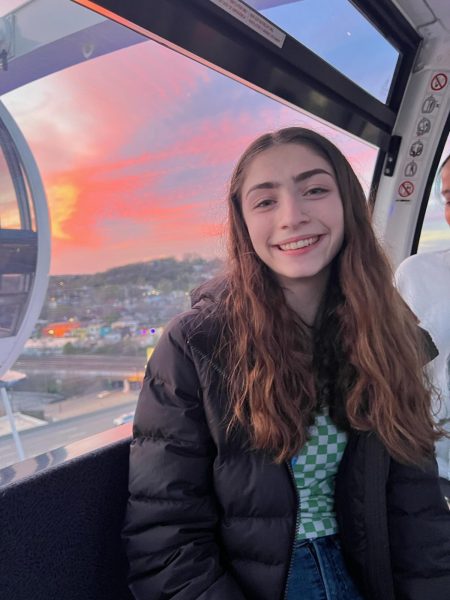After changes to the service learning policy were announced last May, a group of concerned students presented a petition with almost 200 signatures to Upper School Director Mr. Boccuzzi and Service Learning Coordinator Ms. Counsell-Torres. Following this meeting, the service learning department maintained the previously announced changes for the 2023-24 school year.
Mainly, student concerns revolve around why the changes — which limit volunteering to 80 approved organizations instead of the previous list of over 375 — were made in the first place; that the new system makes “value judgments” on types of service; that the geographic limitations of the 80 organizations make the program inequitable; and whether student voices were incorporated into the decision.
The main reason for the change is to create “consistency across students’ experiences,” says Ms. Counsell-Torres. “I think before, the program was really what students made of it,” she says. “Students who chose to have this really direct experience would, and students who maybe wanted a more indirect approach that worked with their schedules better…will have a more consistent experience,” she continues, referring to “direct” service as in-person volunteering, like packing groceries at a food bank, and “indirect” as online or behind-the-scenes service, such as organizing a food drive.
She believes that this consistency will foster a greater sense of community among students. Now, upperclassmen who are volunteering at the 80 organizations can become “ambassadors,” sharing their experiences with younger students at a Service Learning Open House in October.
Ms. Counsell-Torres says that another goal of the change is to make service a major part of Lakeside, rather than simply a graduation requirement. For instance, using the partnerships formed with the 80 organizations, the school hopes to incorporate service learning into classes. This might look like learning about food insecurity and then taking action by working as a class with Plant Based Food Share, a nonprofit that Ms. Counsell-Torres connected with as she developed the new program.
Finally, the last reason for the shift was that the department had received feedback from students that the spreadsheet of 375 approved organizations was difficult to navigate. “The goal here was to clean up an old and outdated system and make it more user-friendly for the students to engage in meaningful service,” said Director of Experiential Education Mr. Smith.
As for the worry that the new program issues “value judgments” on types of service, Upper School Director Mr. Boccuzzi explains that the school wants to ensure that students’ service is “going to have the biggest impact possible, both on the communities they’re helping and on what they learn from the process and the reflection.” He continues: “To our knowledge and to what we are thinking, the best way to do that is through direct service. So it is amazing to bring toys to a children’s hospital and I hope people choose to take part in activities like this throughout their lives. That being said, we think that the way to have the greatest impact on both sides is to actually get involved with direct service.”
Still, there is the question of how the limited geographic coverage of the 80 organizations may affect students. To this, Mr. Boccuzzi responds that Lakeside does “a better job addressing equity of access to opportunities than almost any other school I’ve seen.” He points out that Lakeside consistently works with families to ensure that all students can participate in school events such as dances and performances, saying, “I expect that we will do the same [for] service.”
Mr. Smith and Ms. Counsell-Torres also note that the map is not complete; they are actively working to ensure that the approved organizations span the greater Seattle area and to add more opportunities in sports, arts, and healthcare. They encourage students who are concerned about transportation to the organizations to contact Ms. Asaka, Director of Student and Family Support.
Finally, students are concerned that their voices were not considered in the change, with a member of the 2022-23 Service Learning Advisory Board claiming that all of the students on the board were against the 80-organization limit. “I don’t think our voices are reflected at all,” the member said.
While Ms. Counsell-Torres acknowledges that the board had “various opinions” about the shift to 80 organizations, she says that “the information, ideas, and experiences they shared were central to Mr. Smith’s and my decision to move forward with this plan” as well as making other recent changes, such as switching from x2VOL to Canvas and increasing student leadership opportunities.
Mr. Smith notes that, while the board allows the department to hear student concerns, it “was never designed to be a decision-making body,” and that he and Ms. Counsell-Torres make final decisions.
Ultimately, says Mr. Boccuzzi, not every school decision will be democratic, and the administration decided that guaranteeing that students have a service experience that aligns with Lakeside’s service learning values, even if the transition is challenging for students, is “a trade-off right now that we’re willing to take a chance on.”
The next step as students try out the new program, says Mr. Boccuzzi, is gathering as much feedback as possible. Ms. Counsell-Torres, Mr. Smith, and Mr. Boccuzzi urge students to email them or walk into their offices. Students can also speak to their advisors about any issues.
“We’re not going to adjust everything on a dime and just switch it,” concludes Mr. Boccuzzi. “But we’re also not just going to stubbornly stick to something if it isn’t serving our students and our communities, and the people we’re trying to serve well.”


